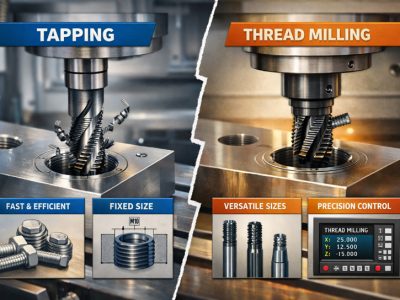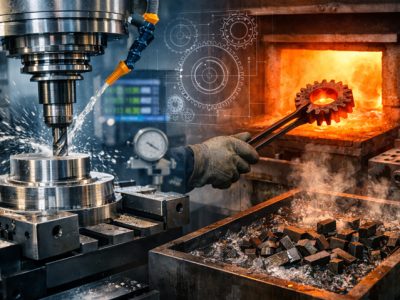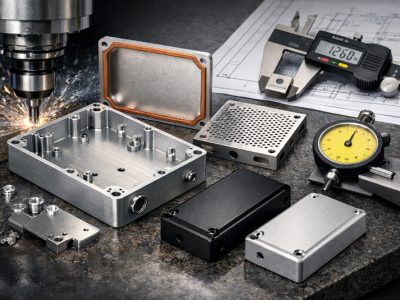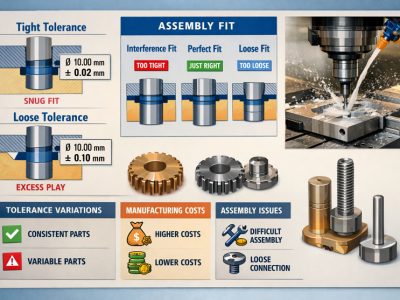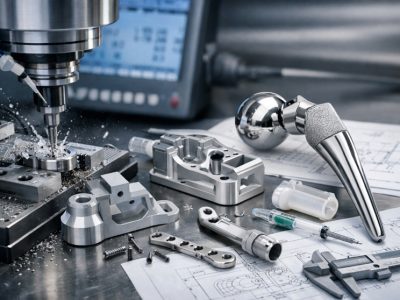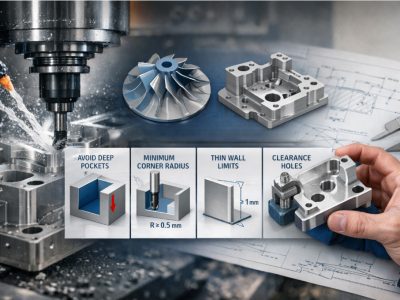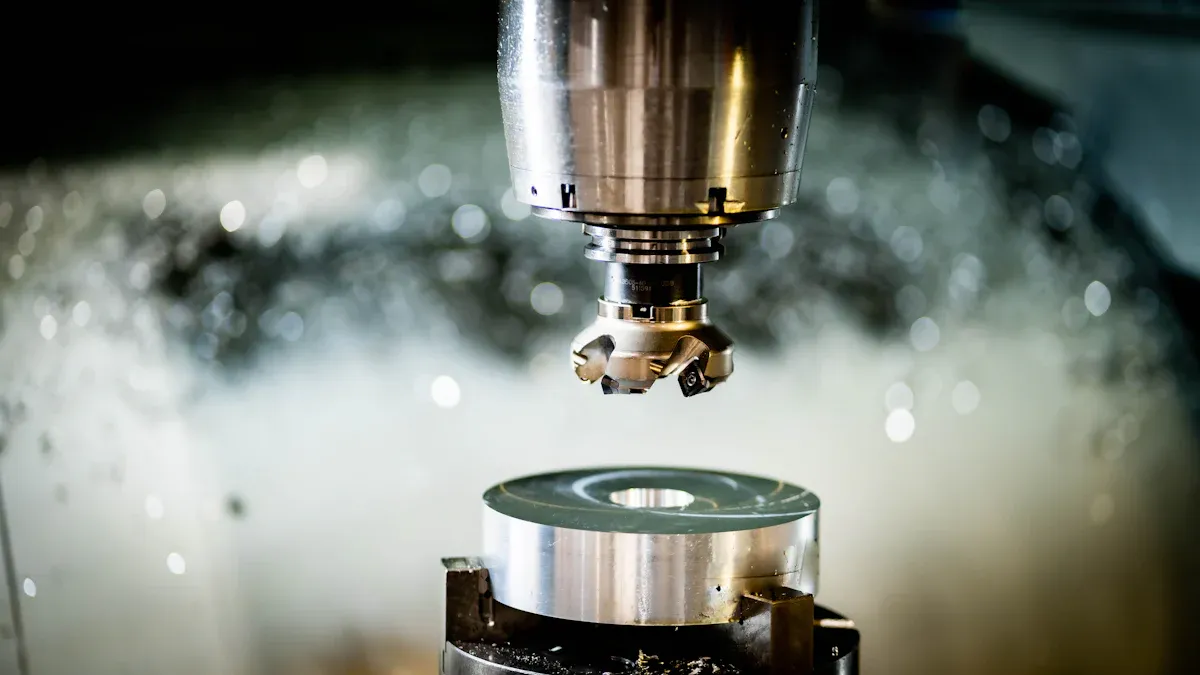
A CNC operator is a trained worker who uses and monitors computer-controlled machines. These machines create parts with high precision by following specific instructions. So, what is a CNC operator? As a CNC operator, you play a crucial role in ensuring that every part is manufactured correctly.
Your job maintains high-quality and efficient production. For instance:
Statistical process control (SPC) enhances the reliability of CNC machining.
Process capability indices, such as Cp and Cpk, indicate how well parts conform to design specifications. A Cp of 1.33 suggests that only 1 out of 16,000 parts will fall outside the limits.
Modern CNC machines boast Cp levels exceeding 3, making them extremely accurate with minimal errors.
By understanding essential part details and adhering to these standards, you contribute to the advancement of modern manufacturing and its efficiency.
Key Takeaways
CNC operators are important in factories. They make sure machines create accurate parts. Knowing how to use machines improves quality and saves time.
Reading blueprints is a must for CNC operators. This helps make parts correctly, avoiding mistakes and waste.
Taking care of machines and fixing problems fast is important. This stops machines from breaking and keeps work going smoothly.
CNC operators can grow in their jobs. With practice, you can become a CNC programmer or supervisor. These jobs pay more and have fun projects.
Training programs help you start a CNC job. Hands-on practice teaches the skills you need for this growing career.
What is a CNC Operator?
Definition and Overview
A CNC operator is someone who works with special machines. These machines use computer programs to make exact parts and shapes. As a CNC operator, you make sure the machines follow the instructions correctly to create good-quality items.
CNC machines are important in industries like cars, planes, and electronics. They can cut, drill, and shape materials with great accuracy. By learning how to use these machines well, you help make manufacturing faster and more reliable.
Role in Manufacturing Processes
CNC operators are key in turning raw materials into finished products. You set up machines, load materials, and watch the process. Your skills make sure everything works smoothly and efficiently.
Here’s a list of what CNC operators do and their results:
Role/Responsibility | Description |
|---|---|
Machine Operation | Prepare and run CNC machines properly. |
Material Handling | Add raw materials and take out finished items. |
Basic Maintenance | Check, clean, and oil the machines regularly. |
Monitoring | Watch machines to ensure they work well and spot problems. |
Quality Control | Check finished parts with tools like rulers and calipers. |
Basic Troubleshooting | Fix small problems with the machines. |
Examples include making work 12% faster and cutting waste by 8%. |
Your work affects how well and quickly products are made.
Importance in Modern Industry
CNC operators are very important in today’s factories. Your skills help make sure products are high-quality with less waste and fewer mistakes. Companies depend on you to keep things precise and consistent, which is crucial for staying competitive.
Here are some ways to measure CNC operator skills:
Indicator | Description |
|---|---|
How fast you set up machines compared to the plan. | |
Productivity | How much work gets done based on time and effort. |
Number of Defects | Fewer mistakes mean better skills and performance. |
By doing well in these areas, you help companies save money and work better. Being a CNC operator isn’t just about running machines; it’s about improving how things are made and pushing for excellence.
Key Responsibilities of a CNC Operator
Operating CNC Machines
CNC operators run and watch machines during production. They make sure machines work well and create accurate parts. This includes setting up machines, adjusting them, and adding materials. Before starting, they test the machine to check settings.
Operators keep an eye on machines while they work. If problems happen, they fix them quickly. For example, if a part is wrong, they adjust the machine to fix it. This helps reduce waste and makes production faster.
CNC operators aim to make 20-25 parts per hour with only 2-5% defects.
Reading and Interpreting Blueprints
CNC operators must understand blueprints to make parts correctly. Blueprints show sizes, limits, and details for each part. Operators study these drawings and turn them into machine instructions.
For example, they find the needed sizes and enter them into the machine. This ensures the finished part matches the design perfectly. Reading blueprints carefully helps keep quality high and meet customer needs.
Review blueprints, materials, and plans before starting work. |
Convert blueprint details into machine instructions. |
Program or input commands into CNC machines. |
Monitoring Quality and Performance
Checking quality is an important part of CNC work. Operators inspect finished parts to ensure they meet the required standards. Tools like calipers and micrometers help measure sizes accurately. If a part is wrong, they adjust the machine to fix it.
Operators also track how well machines perform. They look at numbers like production speed, defect rates, and waste levels. For example, a good machine should work 70-85% of the time and waste only 5-10%. By watching these numbers, operators find ways to improve production.
Metric | Description | Average/Benchmark |
|---|---|---|
Time machines are actively making parts. | 70-85% utilization | |
CNC Defect Rates | Percentage of parts that fail quality checks. | 2-5% defect rate |
Waste Reduction | Measures how much material is saved. | 5-10% reduction |
By doing these tasks well, CNC operators help make manufacturing successful.
Performing Maintenance and Troubleshooting
As a CNC operator, you help keep machines working properly. Regular care and quick fixes stop delays and save time. By acting early, you can stop small problems from becoming big ones.
Maintenance means checking machines, cleaning parts, and looking for damage. For example, you might oil moving parts or change worn tools. These steps help machines last longer and work better. A cared-for machine makes fewer mistakes and runs longer without stopping.
Fixing problems is just as important. If a machine breaks, you find the issue and fix it fast. This might mean changing settings, tightening parts, or replacing broken pieces. Solving problems quickly keeps production running smoothly.
Tip: Write down all maintenance tasks. This helps track work and spot patterns in machine issues.
Here’s a simple chart of common problems and how to stop them:
Common Problems | How to Prevent Them |
|---|---|
Broken machine tools | Do regular maintenance |
Loose parts and vibrations | Check the machine often |
Overheating | Watch fluid levels and moving parts daily |
By following these tips, you can avoid breakdowns and improve machine performance. For instance, checking fluids daily stops overheating, and tightening parts prevents damage from shaking.
Your care and problem-solving skills keep machines running well. These abilities make you a key part of the manufacturing team.
Skills Needed for CNC Operators
Understanding Machines and Technical Skills
CNC operators must know how machines work and have good technical skills. This helps them set up machines, change settings, and fix problems. Knowing the parts and how they work makes it easier to solve issues fast. This keeps production running smoothly and saves time.
Learning through training and guides is very important. Without proper learning, operators may take longer or make mistakes. This can slow down production. By knowing machines well, you can work faster and make fewer errors, improving productivity.
Being Careful and Accurate
CNC work needs great accuracy and attention to detail. You must carefully read blueprints and check finished parts. Even small mistakes can cause bad products, wasted materials, and delays.
Quality checks show how being careful helps CNC work. For example:
SPC tracks inspections and tests to meet standards.
Checking quality at different steps finds problems early and reduces waste.
SPC trends help fix issues quickly, lowering mistakes and improving work.
By focusing on details, you make sure every part is correct. This keeps customers happy and lowers costs.
Solving Problems and Thinking Smart
CNC operators often face problems like broken machines or bad materials. You need to think smart and solve these issues quickly. If a machine stops, you must find the problem, fix it, and get back to work fast.
For instance, if a tool breaks, you might replace it, adjust settings, and restart. Quick actions like this reduce delays and keep things moving. Learning problem-solving skills helps you handle tough situations better, making you a key team member.
Tip: Practice fixing common machine problems to improve your skills in solving issues.
Communication and Teamwork
Good communication and teamwork are very important for CNC operators. You often work with engineers, supervisors, and quality control staff. Clear communication helps everyone understand their jobs and work together smoothly.
Talking and sharing ideas makes work faster and easier. When you update your team, it solves problems quickly. For example:
Clear communication helps production move faster, improving prototyping services.
Working together reduces machine downtime during maintenance.
Sharing updates keeps everyone on track, avoiding delays in projects.
Teamwork helps reach production goals. By cooperating, you and your team can find ways to fix mistakes and improve processes. Regular talks about goals let you suggest better ways to work.
Tip: Use team meetings to share ideas and fix problems early. This keeps everyone focused and motivated.
Working well with others creates a happy workplace. It helps finish tasks on time and keeps machines running smoothly. For instance, sharing maintenance plans with your team keeps machines in good shape.
Here’s how teamwork and communication help CNC operations:
Better teamwork prevents delays in production.
Shared goals improve work speed and product quality.
Solving problems together fixes issues faster.
By improving communication and teamwork, you become a better CNC operator. These skills help your team succeed and make your work more effective.
Career Opportunities for CNC Operators
Starting Out: Beginner Roles and Training
Starting as a CNC operator can lead to great jobs. Beginner roles teach you how to use machines, read blueprints, and check quality. These jobs help you learn by doing and build strong skills in manufacturing.
Training programs are very important for these roles. For example, a 36-week CNC training program teaches setup and fixing machines. Programs made with industry experts teach skills needed for real jobs. The Bureau of Labor Statistics (BLS) says CNC jobs will grow 5% in the next 10 years. With over 44,000 job openings each year, beginner roles are a steady way to start your career.
Tip: Join a training program to quickly start your CNC career. Hands-on learning and classes make you more likely to get hired.
Moving Up: Programmer, Supervisor, Engineer
With experience, you can move to higher roles. Becoming a CNC programmer lets you write and improve machine codes for better production. Programmers are needed, with job growth expected to be 16% by 2026. This job pays more and involves exciting projects.
Supervisors lead teams and manage work schedules. These jobs need leadership and deep CNC knowledge. Engineers focus on designing and improving how things are made. Some jobs mix technical and management skills, paying 15-25% more than regular roles.
Role | Growth Rate | Benefits |
|---|---|---|
CNC Programmer | 16% by 2026 | Better pay and challenging tasks |
Supervisor | Leadership role | Team and schedule management |
Engineer | Process improvement | New ideas for better manufacturing |
Learning new skills is key to growing in these jobs. Keeping up with new tools and trends helps you stay ahead in the changing manufacturing world.
Industries Hiring CNC Operators
Many industries need CNC operators. Aerospace and medical device companies depend on precise machining, offering great jobs for skilled workers. The global CNC market is expected to grow 44% from 2019 to 2026 due to better technology and demand for quality products.
Other industries, like cars and electronics, also need CNC operators for detailed parts. The CNC machine market, worth $56 billion in 2021, is expected to grow 10% yearly until 2030. This shows how CNC skills are needed in many fields.
Note: Industries like aerospace and medical devices, which focus on precision and innovation, offer some of the best jobs for CNC operators.
By exploring these industries, you can find jobs that fit your skills and interests. Whether you want to work on advanced technology or everyday items, CNC machining offers many choices.
Salary Expectations and Job Outlook
As a CNC operator, you can earn good pay and have a bright future. In 2025, entry-level CNC machinists make about $53,860 yearly. This amount changes based on where you live. For example, in California, the average pay is $59,100 per year. Salaries there range from $45,822 to $71,881. These numbers show the need for skilled workers in industries like aerospace and manufacturing.
Many companies let you work overtime, which increases your earnings. Experienced operators often get extra pay for longer hours or harder tasks. This makes the job rewarding if you’re ready for challenges.
The future for CNC operators looks great. New technologies are increasing the need for precise machining. Many industries lack skilled workers, giving you chances to grow. Employers want machinists who learn new tools and methods, like programming machines to improve production.
This career offers stability and growth. With experience, you can move into higher-paying jobs like CNC programmer or supervisor. These roles pay more and let you work on exciting projects that improve manufacturing.
Tip: Learn about new programming tools and machine updates to stay ahead in your career.
Here’s a summary of pay and job opportunities:
Average yearly pay for CNC Machinist I: $53,860 (range: $41,748–$65,514).
California average pay: $59,100 (range: $45,822–$71,881).
Demand rising due to new technologies and fewer skilled workers.
Extra pay for overtime and growth in industries like aerospace and manufacturing.
Choosing a career as a CNC operator gives you strong earning potential and room to grow over time.
CNC operators are important in today’s factories. They help make products with accuracy and speed. To do well, you need skills like programming, fixing problems, and being careful.
Jobs include CNC Machinist, Programmer, and Quality Checker.
Learning programs and certificates help you find great jobs.
Begin your path now by looking into CNC training courses. With hard work, you can have a successful career in this exciting field.
FAQ
What is the difference between a CNC operator and a CNC programmer?
A CNC operator works with machines during production. They make sure machines run smoothly. A CNC programmer creates the instructions that guide the machines. Operators focus on running machines, while programmers handle the setup.
Do you need a degree to become a CNC operator?
No, a degree is not required. Many start with training programs or certifications. Hands-on practice and short courses are enough for beginner jobs.
How long does it take to learn CNC machining?
It usually takes 6–12 months to learn CNC machining. Training programs or apprenticeships help you gain skills. Advanced tasks, like programming, may take longer. Practice helps you learn faster.
What tools do CNC operators use for quality checks?
CNC operators use tools like calipers and micrometers to measure parts. These tools check if parts are the right size and meet design needs.
Can CNC operators work in industries outside manufacturing?
Yes, CNC operators can work in fields like aerospace and medical devices. Any industry needing precise parts offers jobs for skilled operators.
Tip: Look into industries with high CNC demand for more job choices.
 LKprototype
LKprototype

